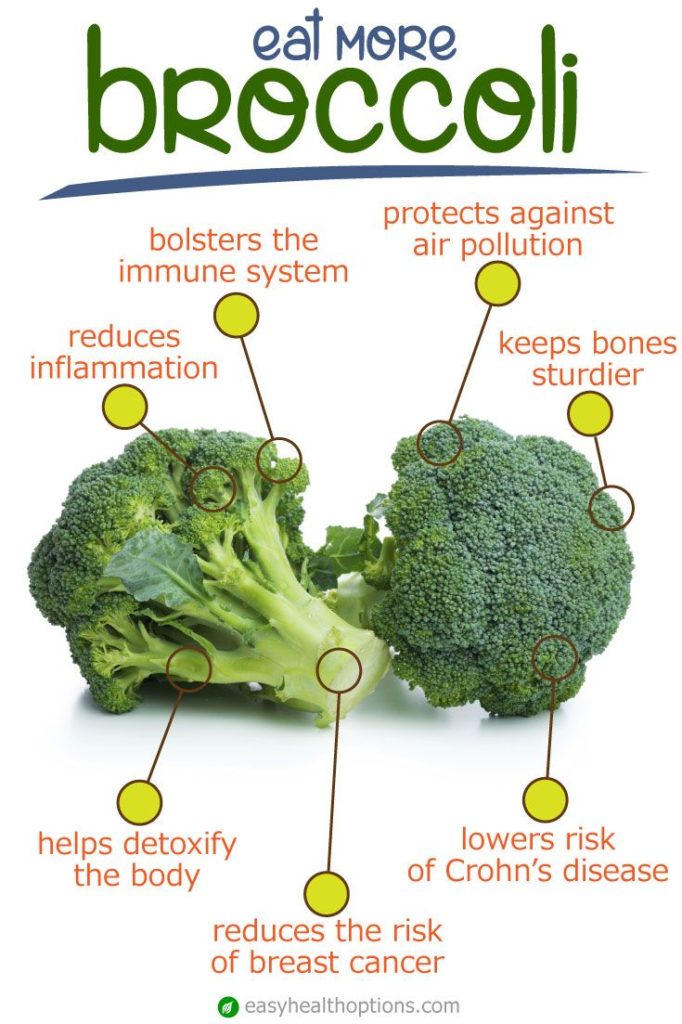- 0716 687248
- info@amaica.co.ke
- Peponi Road,
Westlands
Broccoli ‘s been around for at least 2,000 years and originated from a wild cabbage native to Europe. It was improved upon by the Romans and is currently cultivated across the world. Broccoli was introduced to the United States in colonial times and made popular by Italian immigrants.
Though low in calories, broccoli is among the most nutrient-dense foods. Broccoli is a fantastic source of vitamins C, K and A, as well as fiber and folic acid. It’s a very good source of potassium, phosphorus, magnesium, and vitamins E and B6. In addition, it contains glucosinolates, phyto-chemicals with powerful anticancer properties.
Nutritional value of broccoli per 100g:
Broccoli has exceptional anticancer properties, especially for breast cancer. Compounds in broccoli known as glucosinolates, specifically indole-3-carbinol and sulforaphane, increase the excretion of the type of estrogen (2-hydroxyestrone) associated with breast cancer.
There are numerous studies investigating the health benefits of these sulphur-containing compounds in combating breast cancer as well as prostate cancer. Research has revealed that sulforaphane halted the growth of breast cancer and prostate cancer cells.
Indole-3-carbinol is also a significant cancer-fighting compound, since it has been proven to stop the growth of both breast cancer and prostate cancer cells.
Researchers have found that indole-3-carbinol works by halting the cell cycle in breast cancer cells without actually killing the cells.
In addition, indole-3-carbinol increases the ability of the liver to detoxify toxic compounds and also decreases the growth of human papillomavirus (a virus associated with cervical cancer).
The growth of thyroid and goiter cancer cells slowed if they were treated with indole-3-carbinol and diindolylmethane (DIM), another sulphur-containing substance in broccoli.
Research suggests that to be able to cut the risk of cancer in half the average individual would have to eat about 2 pounds of broccoli weekly. As the concentration of sulforaphane is a lot higher in broccoli sprouts than in mature broccoli, exactly the same decrease in risk theoretically may be had with a weekly intake of slightly over an ounce of sprouts.